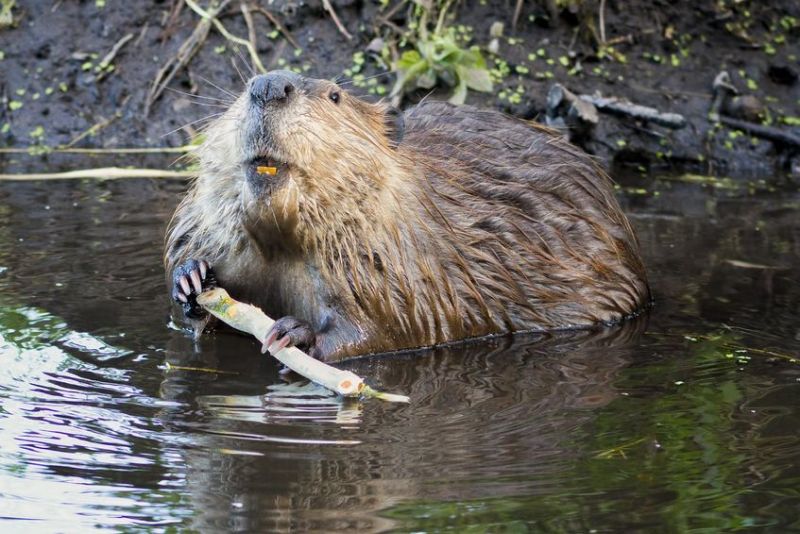
Beavers have arrived in the Forest of Dean as part of a reintroduction scheme amid concern from the farming industry over a possible impact on agriculture.
The pair of Eurasian Beavers arrived to the Forest of Dean this week for the first time for around 400 years.
It is expected that the beavers’ activity in the Forest of Dean will improve biodiversity in their new 6.5 hectare home and may have the potential to reduce local flood risk.
Regular monitoring will continue on site throughout the three-year project to assess these ecosystem benefits.
The release was attended by Defra Secretary Michael Gove, who announced £20,000 of new funding for the trial reintroduction of beavers in Devon to understand further the impact of bringing beavers back.
The Forestry Commission unveiled plans for a trial reintroduction into the Greathough Brook in March 2017. Since then, Natural England granted Forestry Commission officials a licence to release the beavers.
However, farmers have expressed concern about the increasing amount of beaver numbers in the UK.
Farming union NFU Scotland has insisted that 'proper management' of the species is fundamental in order to avoid impact on agriculture.
Some farmers have warned of considerable damage to farmland and the spread of disease.
The Scottish government has also announced that beavers will be reintroduced in Scotland and will receive a special protected status.
'Actively managed'
Scotland's Environment Secretary Roseanna Cunningham said the species will have to be 'actively managed', in line with practices in other European countries.
But NFU Scotland and other land management and environmental organisations wrote a joint letter to Scotland's Ms Cunningham earlier this year to set out broad principles and key components of an appropriate management regime.
Rob Livesey, NFU Scotland’s Vice President previously commented about the situation, saying beavers must be "appropriately managed" to minimise the risk of unacceptable impacts on agriculture.
He said it is a view that is shared by many within the conservation community.
He continued: “It is essential that Scottish agriculture is not negatively affected by this decision.”
NFUS said it is sceptical that beavers can be excluded from areas of highly productive farmland that are heavily reliant on complex drainage systems and flood banks.
